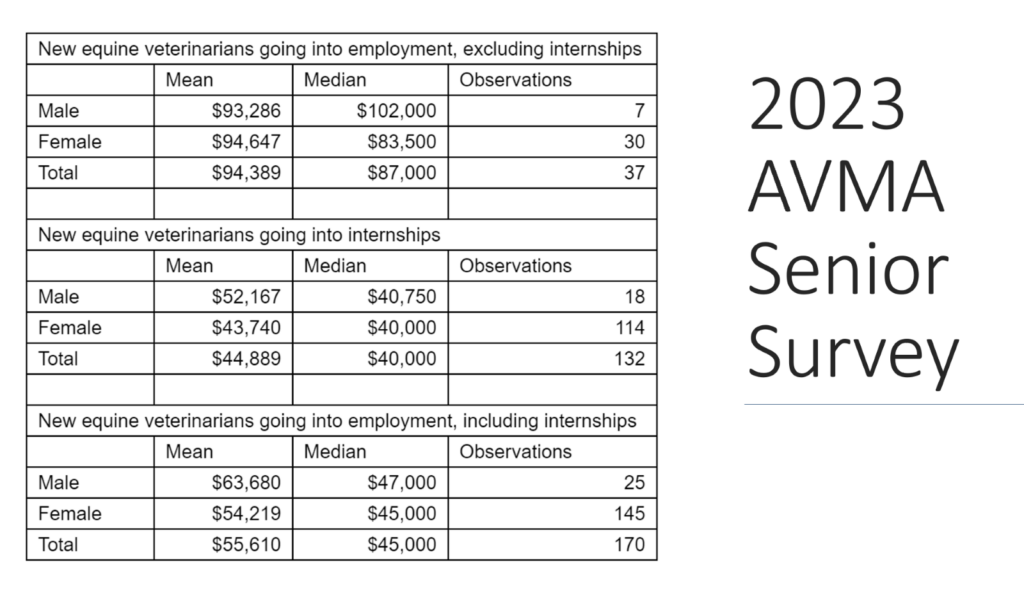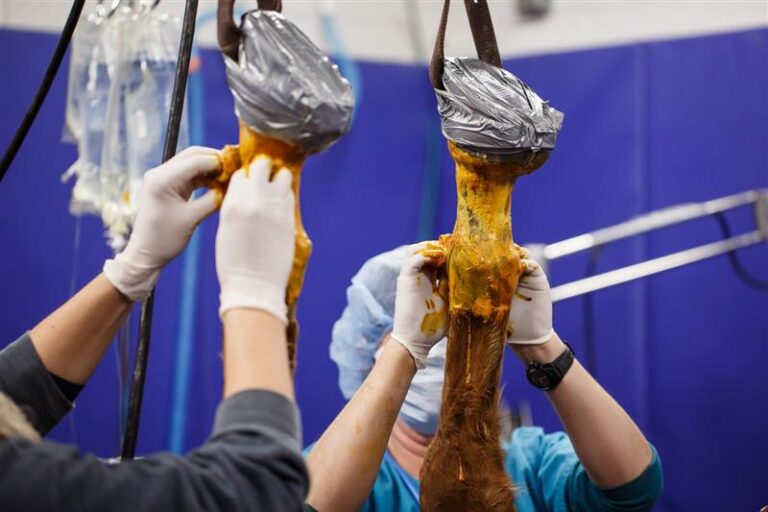
In August 2022, AAEP Officers appointed members to the Commission on Equine Veterinary Sustainability’s Compensation Subcommittee. Jim Zeliff, DVM, MBA, and Travis Boston, DVM, became co-chairs, and Amy Grice, VMD, MBA, became the officer liaison. In 2024, treasurer Mitchell Rode, DVM, assumed the officer liaison position. Subcommittee members currently include Drs. Shane Baird, William Baker Jr., Kirsten Frederickson, Amy Grice, Martha Mallicote, Erica Paxton, Mike Pownall, Jennifer Reda, Olivia Rudolphi, Danielle Schilpp, and Mark Kinsley.
Compensation Subcommittee Tasks
The subcommittee was charged with ensuring members understand current financial numbers and market demands, as well as the actions they can take to increase their salaries, benefits, and overall compensation. The subcommittee’s goal is to make compensation more attractive for veterinarians considering a career in equine practice.
Initially, the subcommittee focused on creating a comprehensive salary study for the various demographics represented in the AAEP membership. The study included ownership/associate status and practice type to ensure an accurate baseline of information. The subcommittee anticipates repeating this study in three to five years to measure progress.
Compensation Survey Results
The compensation survey asked AAEP members for their 2021 W-2 income from veterinary work, and 1,762 people responded. Because respondents who graduated in 2020 and 2021 were interns or students during half the 2021 calendar year, their results were removed from the following averages, which are rounded to the nearest $1,000:
- 2016-2019 Graduates (2-5 years post-graduation): Average salary of $89,000
-
2011-2015 Graduates (6-10 years post-graduation): Average salary of $123,000 -
2006-2010 Graduates (11-15 years post-graduation): Average salary of $164,000
Additional information from the survey is available at https://aaep.org/aaep-equine-veterinary-sustainability-initiative/compensation.
Among the important findings are facts about emergency fee compensation, compensation satisfaction, average hours worked in the busiest and least busy quarters, and employee benefits. The subcommittee will release data on debt load versus salary, the impact on revenue by number of days worked, and differences between owners’ and associates’ compensation in 2024.
AVMA Senior Survey
The AVMA conducts annual surveys of graduating seniors who have accepted associate positions to capture their guaranteed (prospective) salaries, but it is important to note the figures do not reflect production bonuses or emergency fees paid to the attending veterinarian. These additions might boost equine veterinarians’ actual compensation by at least 25% above the published figures, according to calculations from the Compensation Subcommittee’s survey data.
In 2023, the AVMA Senior Survey showed the average salary offered to graduating seniors accepting equine associate positions without an internship was $94,389 among the 37 graduates pursuing such a route. The survey also revealed rising salaries for those new veterinarians accepting equine internships. For the 132 doctors taking on an equine internship position, the average salary was $44,889.

Looking to the Future
Bringing equine practitioners’ compensation more in line with companion animal practitioners will require changes in efficiency, utilization of staff, and fees. In 2023, the Compensation Subcommittee released fee survey results from a cohort of Decade One and VMG practices. The subcommittee plans to develop a more streamlined and well-defined fee survey for distribution to the AAEP membership in 2024. Please watch for information on how to participate in this important study.
The subcommittee will continue to develop additional resources and educational pieces in 2024 to help practice owners improve their financial performance and pay veterinarians higher compensation. The Compensation Subcommittee hopes to help attract and retain future equine doctors by improving compensation across the equine industry.
Brought to you by









